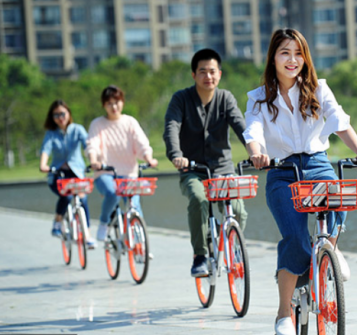
1.What are shared bikes facing?
A They are becoming a lifestyle for people.
B They are becoming a symbol of fashion.
C They are turning into rubbish.
D They are turning into trouble on the streets.
解析:选D。细节理解题。由第二段的But, now, they are eyesores, and even trouble on the streets.可知,现在他们是“眼中钉”,甚至街道上的麻烦。故选D。此题容易误选C,第一段提到了It is always painful to see something useful being turned into rubbish, and that may be what the shared bikes are facing.但是这里的rubbish只是一种隐喻,并不是真正意义上的rubbish(垃圾)。
2.What happened to shared bikes according to Paragraph 3?
A Their seats were missing.
B Their wheels were twisted.
C Their locks were broken.
D All of the above.
解析:选D。细节理解题。由第三段What’s more, I have seen shared bikes with their seats missing, wheels twisted or locks broken many times on the street可知,故选D。
3.What does the underlined sentence in the last paragraph mean?
A When the tide goes out, we can see who wears nothing.
B It’s better to swim with nothing.
C Only when a company is managed well can it become better and better.
D You should do business when it’s popular.
解析:选C。句意理解题。根据after all可知,此句与前一句意思相近,故选C。
4.Which is NOT true according to the passage?
A You can deposit 99 yuan before you use shared bikes.
B Some people threw shared bikes into rivers on purpose.
C Shared bikes used to be a symbol of fashion.
D Bike-share companies can last forever.
解析:选D。综合理解题。由最后一段No one knows how long bike-share companies can last.可知没人知道共享单车公司能持续多久,故选D。